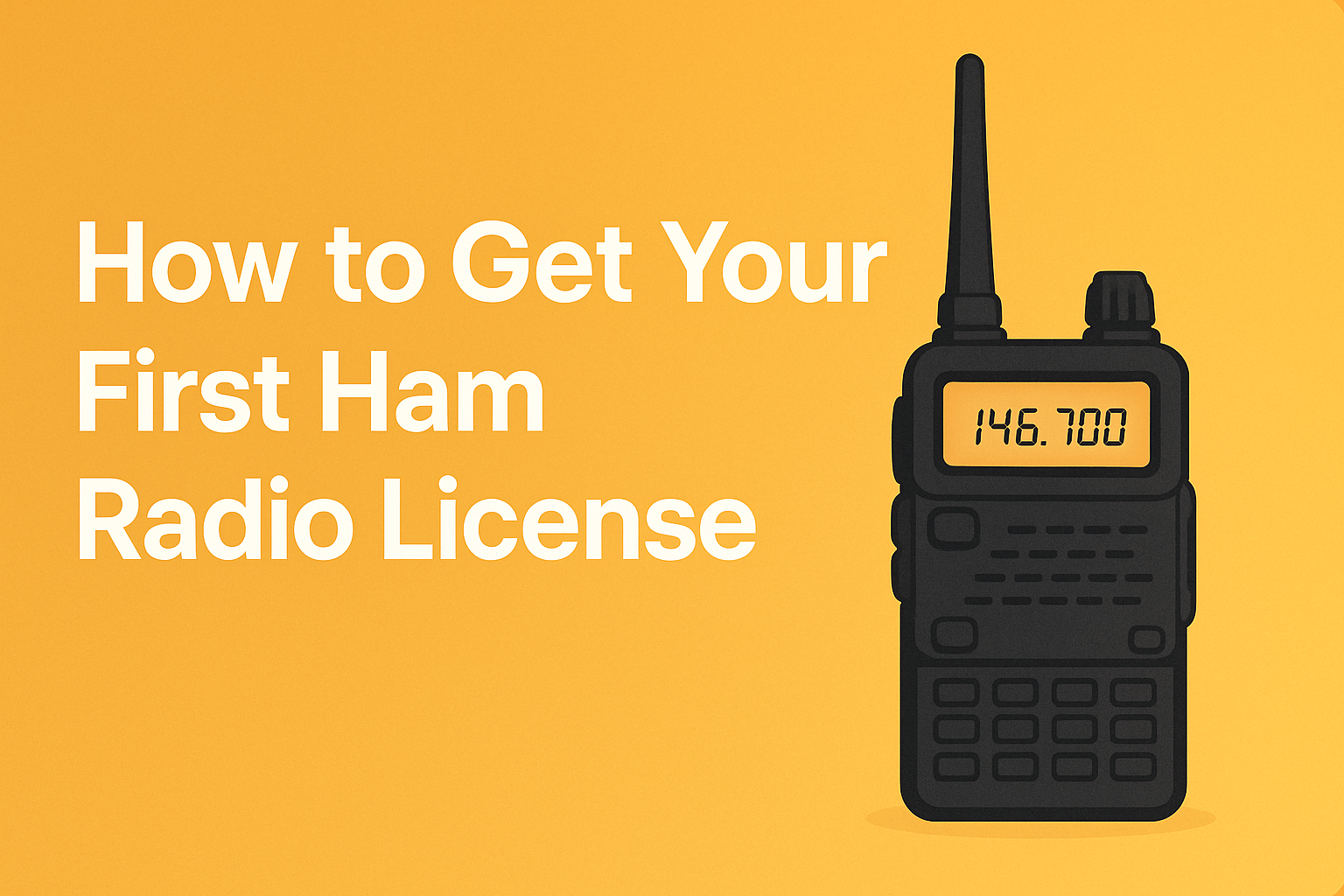If you’ve ever been curious about ham radio – whether for emergency communication, a new hobby, or connecting with people across the globe – getting your license is the first step. While the world of amateur radio may seem a bit intimidating at first, it’s more accessible than ever thanks to online resources, practice exams, and a welcoming community. Here’s a straightforward guide to help you understand the process, the different license levels, what it costs, and what you can do once you’re licensed.

Why You Need a License
In the U.S., amateur radio is regulated by the Federal Communications Commission (FCC), and you must be licensed to legally transmit on amateur bands. This ensures operators understand the rules of the airwaves, follow safety standards, and avoid interfering with other communication services like aircraft, emergency responders, and commercial broadcasts.
Operating without a license isn’t just discouraged, it’s illegal. But once you’re licensed, you’re granted a wide range of privileges and can join a global network of hobbyists, public service communicators, and technical experimenters.
The Three License Levels
There are three main classes of ham radio licenses in the U.S.:
1. Technician License (Entry-Level)
-
Privileges: Access to VHF and UHF frequencies (great for local communication), plus some limited HF (shortwave) privileges.
-
Ideal For: Beginners, especially those interested in local communication or emergency services.
-
Exam: 35 questions on basic regulations, operating practices, and electronics theory.
2. General License
-
Privileges: All Technician privileges, plus significantly expanded access to HF bands for worldwide communication.
-
Ideal For: Hams interested in long-distance (DX) communication.
-
Exam: 35 questions, with more focus on radio theory and operating procedures.
3. Amateur Extra License
-
Privileges: Full access to all U.S. amateur bands.
-
Ideal For: Those who want the maximum privileges, including exclusive frequencies and contests.
-
Exam: 50 questions, covering advanced electronics, regulations, and signal propagation.
Estimated Costs to Get Started
Getting into ham radio is relatively affordable, especially compared to other hobbies. Here’s a general cost breakdown:
-
Study Materials: $0–$30
Many free online resources and practice exams are available, but you can also buy books or apps to study more effectively. -
Exam Fee: ~$15
Testing is administered by Volunteer Examiners (VEs) and may include a small fee to cover materials and processing. -
FCC Application Fee: $35
As of 2022, the FCC began charging a $35 fee when you apply for or renew a license. -
Starter Radio Equipment: $30–$300
You can get a basic handheld VHF/UHF radio (like a Baofeng UV-5R) for under $20, or invest more for mobile or base stations.
Altogether, you can earn your Technician license and get on the air for as little as $100 total.
What You Can Do With a Ham Radio License
Once licensed, a whole new world opens up. Here are just a few things hams do:
-
Emergency Communication: Volunteer with local disaster response groups like ARES or RACES. I am personally a member of the Marion County ARES group.
-
Community Service: Support events like marathons and parades by providing reliable communication.
-
Worldwide Contacts: Make friends across the globe through HF bands and digital modes.
-
Satellite and Space Communication: Talk to other hams through amateur satellites, or even contact the ISS.
-
Experimentation: Build antennas, learn Morse code, try digital voice modes, or even automate stations with Raspberry Pi.
You’ll also be able to participate in contests, join local ham clubs, and expand your knowledge through hands-on learning.
Where to Learn More
If you’re ready to dive deeper, the American Radio Relay League (ARRL) offers excellent guidance. Their website includes study guides, license class information, exam session locators, and educational materials for all levels. Visit www.arrl.org/licensing-education-training to get started.
Final Thoughts:
Getting your ham radio license is both empowering and enjoyable. Whether you’re interested in public service, emergency preparedness, or just connecting with others, amateur radio offers something for everyone. Start with the Technician license, explore what excites you most, and see where the airwaves take you!
Read what I have to say about AI on my Substack.